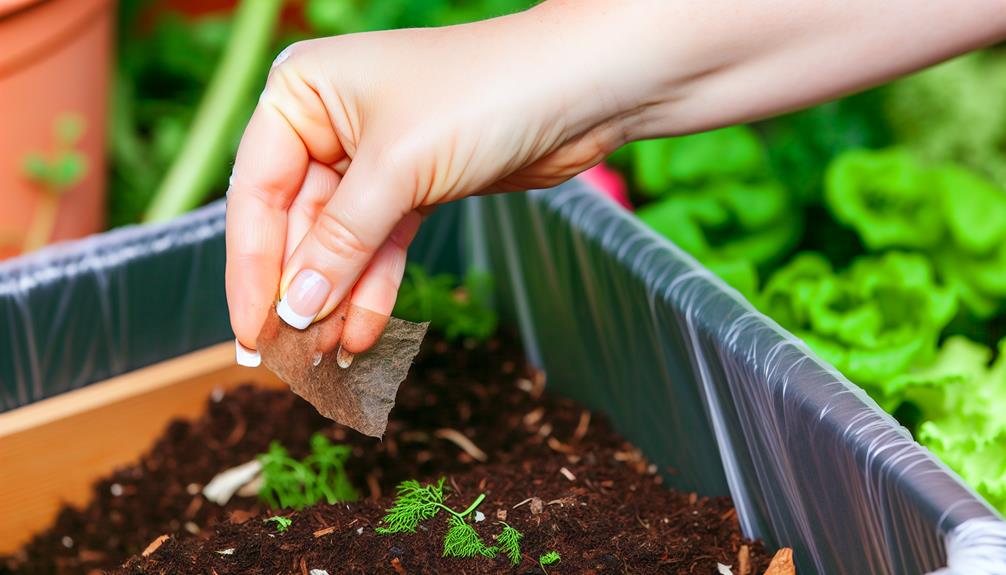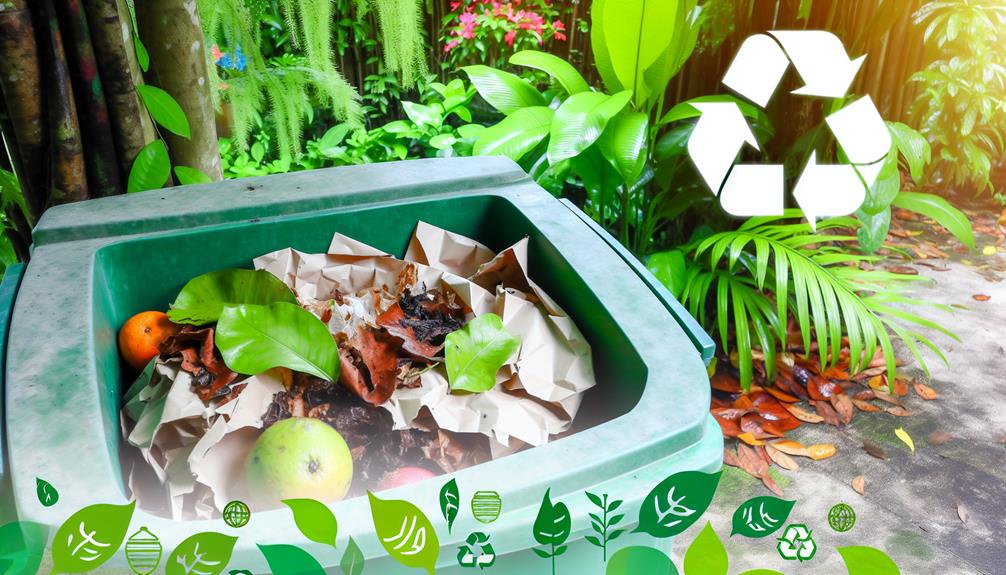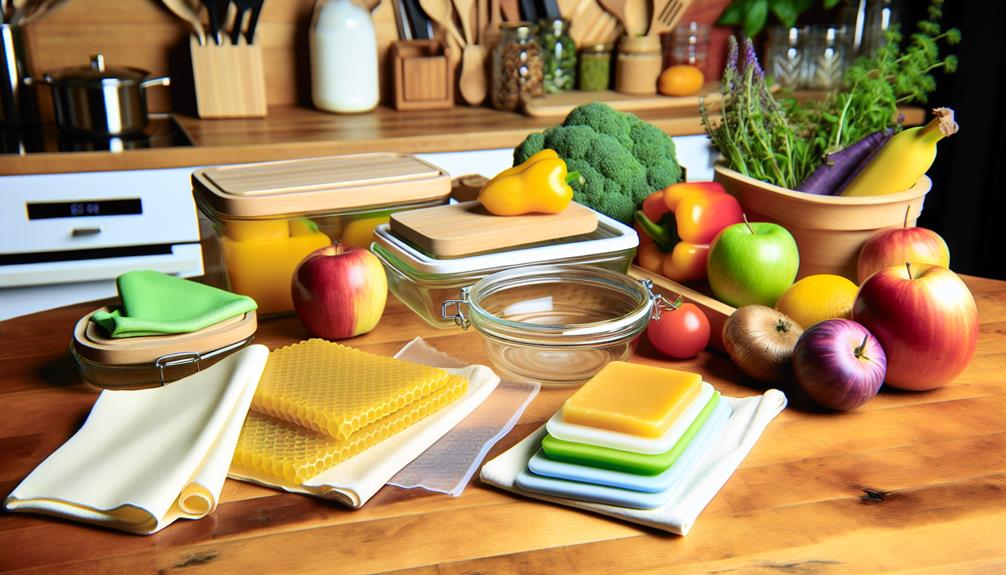

You can compost wax paper, but it’s important to check the type of wax coating first. Paraffin wax-coated paper breaks down slowly and can hinder compost health, while soybean or vegetable-based wax decomposes more easily. To speed up decomposition, shred the wax paper into smaller pieces and add it in moderation.
Monitor your compost to make sure it doesn’t introduce harmful residues. For a more eco-friendly option, consider using beeswax wraps or silicone mats in your kitchen. Understanding these details will help you make informed choices for a healthier composting process.
Wax paper is a type of paper coated with a thin layer of paraffin wax, making it moisture-resistant and non-stick. You might be surprised to learn that its history goes back to the early 20th century when it was first developed to meet the need for a versatile and practical packaging material.
Over time, wax paper has found its way into almost every kitchen, offering countless uses from wrapping food to lining baking trays.
The manufacturing process of wax paper is quite fascinating. First, a high-quality paper is selected, which is then passed through a series of rollers to make sure it’s smooth and uniform. Next, the paper is coated with paraffin wax, a substance derived from petroleum. This wax coating is applied evenly, allowing for that signature moisture-resistant and non-stick quality.
After the coating process, the paper is cooled and cut into the convenient sheets or rolls you’re familiar with.
Because of its versatility, you’ll find wax paper used in various cooking and baking applications, as well as in arts and crafts. Understanding its uses, history, and manufacturing process can help you appreciate how this seemingly simple product became a kitchen staple.
Also Read: Can You Compost Body Wash?
Paraffin wax, a petroleum byproduct, forms the primary coating on the high-quality paper, giving wax paper its distinctive moisture-resistant and non-stick properties. Understanding the materials and composition of wax paper is essential when considering its compostability.
The coating materials and paper sources used in manufacturing wax paper play a significant role in determining whether it can break down in a composting environment.
Typically, wax paper consists of:
Also Read: Can You Compost Blood?
Evaluating the environmental impact of composting wax paper requires understanding how its materials affect soil health and decomposition rates. Wax paper, often coated with paraffin or soybean wax, influences how quickly it breaks down and integrates into the soil.

If you’re using wax paper coated with paraffin, a petroleum-based product, its decomposition can take longer and may not fully break down, potentially contaminating your compost with industrial waste.
Soybean-coated wax paper, on the other hand, is more eco-friendly and decomposes faster, making it a better option for reducing your ecological footprint. By choosing soybean wax paper, you’re contributing to a more sustainable practice that aligns well with eco-conscious values.
When you compost wax paper, consider the type of wax used. This small but significant choice can impact the overall health of your compost. Opting for biodegradable materials helps guarantee that your compost enriches the soil without adding harmful substances.
Also Read: Can You Compost Black-Eyed Peas?
One of the biggest challenges in composting wax paper is making sure it fully decomposes without leaving behind harmful residues. Wax paper often contains petroleum-based wax or other additives, which can slow down its decomposition rate and pose contamination risks to your compost.
To help you navigate these challenges, consider the following:
Also Read: Can You Compost Celery?
When you’re looking for eco-friendly alternatives to wax paper, consider options like unbleached parchment paper or reusable silicone baking mats. These alternatives can help you reduce waste and embrace more sustainable kitchen practices.

One great option is beeswax wraps. They’re versatile, reusable, and perfect for wrapping food items. You can simply wash them with cool water and mild soap, then use them again. They offer a natural and biodegradable way to keep your food fresh.
Another practical choice is silicone mats. These mats are incredibly durable and can be used multiple times for baking, roasting, or even as a surface for kneading dough. They’re non-stick and easy to clean, making them a convenient substitute for wax paper.
Here’s a comparison to help you decide:
| Option | Durability | Reusability |
|---|---|---|
| Beeswax Wraps | High | High |
| Silicone Mats | Very High | Very High |
| Unbleached Parchment Paper | Moderate | Single Use |
Choosing these alternatives not only supports a greener planet but also aligns you with a community of eco-conscious individuals. By adopting these small changes, you contribute to a more sustainable future.
You’re probably wondering how long wax paper takes to decompose in a landfill. Due to various decomposition factors, it can take years. The landfill impact is significant, as it doesn’t break down easily and contributes to waste.
You can’t recycle wax paper with regular paper because the wax coating interferes with the recycling process. It causes paper contamination, making the entire batch unrecyclable. Join your community in proper recycling practices to help the planet!
Yes, there’s a difference. Wax paper isn’t compostable due to its coating, while parchment paper often is. To maximize composting benefits, choose eco-friendly alternatives like uncoated parchment. You’ll help the environment and join a community of eco-conscious individuals!
You might worry about chemical leaching and the environmental impact when composting wax paper. While it’s generally safe, make sure it’s free of synthetic waxes to avoid potential health risks and help protect our shared environment.
You shouldn’t use wax paper in a worm composting bin. Wax composition can affect worm behavior, possibly harming them. Stick to natural materials. Your worms will thrive, and your composting community will thank you!
In conclusion, you shouldn’t compost wax paper due to its materials and composition, which include petroleum-based or paraffin wax. These substances don’t break down efficiently in compost bins.
Instead, consider recycling or reusing wax paper when possible. Opt for alternatives like parchment paper or compostable wraps for a more eco-friendly option.
By making these small changes, you’ll contribute to a healthier environment and more effective composting practices.
